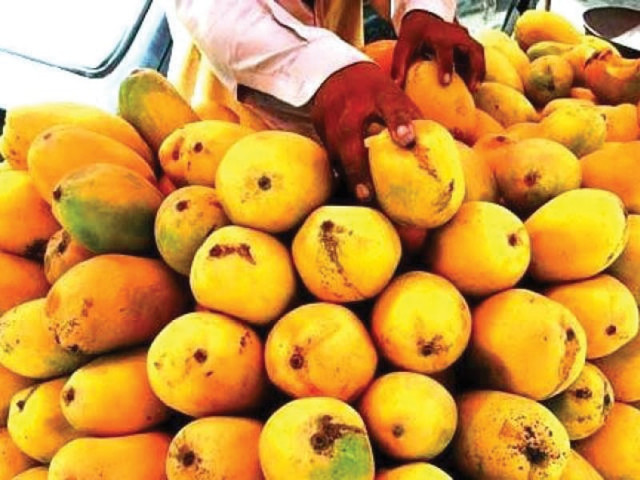King of fruits: Mango exporter sees 15% growth this season
With technological progress, country will add two new export markets.

Durrani Associates has been exporting mangoes to Hong Kong, Singapore, Malaysia, China, Iran, Jordan and the UK. However, the HWT facility has helped it enter new markets of Lebanon, South Korea, Australia and Mauritius. PHOTO: FILE
With the next season starting in May, the country is likely to boost its mango exports by 15% and add two new markets this year, according to Babar Khan Durrani, CEO of Pakistan Horti Fresh Processing (Private) Limited – a joint venture between Durrani Associates and Government of Pakistan.
“We are working on adding New Zealand and South Africa to our list of exports this year,” Durrani said in an interview with The Express Tribune. “Most likely, we’ll have good news in this regard,” he said.
Regardless of whether Pakistan can tap these two markets, Durrani Associates – a major market player with exports to 11 markets – estimates the country will dispatch around 160,000 tons of mangoes to international markets this season. If realised, this will be a 15% rise from 140,000 tons exported last fiscal year.
Bullish on expanding exports to new markets, Durrani Associates has invested heavily in fruit processing technology. In 2012, it established a hot water treatment (HWT) plant in a joint venture with the government for post-harvest treatment and processing of fruits and vegetables.
The company continues to invest in technology. It has recently imported a fruit processing plant from the Netherlands for Rs200 million, which is in addition to the two plants it is operating out of Karachi. The third plant will raise combined processing capacity from the current 25 tons per hour to about 37 tons per hour.
This investment can be recovered in about five years, Durrani had said in a previous interview with The Express Tribune. His optimism seems to be justified as the technological advancement has already helped the company tap more markets.
Durrani Associates has been exporting mangoes to Hong Kong, Singapore, Malaysia, China, Iran, Jordan and the UK. However, the HWT facility has helped it enter new markets of Lebanon, South Korea, Australia and Mauritius.
Pakistan is the sixth largest producer of mangoes with a total production capacity of around 1.8 million tons a year, Durrani said. However, he said, the country exports only 8% of its production while up to 30% is wasted due to multiple reasons ranging from primitive agricultural techniques to lack of processing and storage facilities on a large scale.
With advanced technology, the country can increase its exports by meeting international standards.
“The new plant is fully automatic and will not only process but also do packaging and sizing of mangoes,” Durrani said. “It has an ultraviolet ray function that will separate the damaged or infected mangoes from those fit for human consumption.”
Though the country has tapped many new markets, this year’s focus will be on China – one of the world’s largest markets that opened up for Pakistani mangoes in 2012.
“Our current exports to China are almost nothing,” he said. “China’s demand is about 50,000 tons while we can export up to 20,000 tons.”
However, he said the government can play an important role to help exporters achieve greater penetration in the market they just entered. “The government should mobilise its diplomatic missions in Beijing to help find more buyers,” he said.
Published in The Express Tribune, March 8th, 2014.
Like Business on Facebook, follow @TribuneBiz on Twitter to stay informed and join in the conversation.



















COMMENTS
Comments are moderated and generally will be posted if they are on-topic and not abusive.
For more information, please see our Comments FAQ